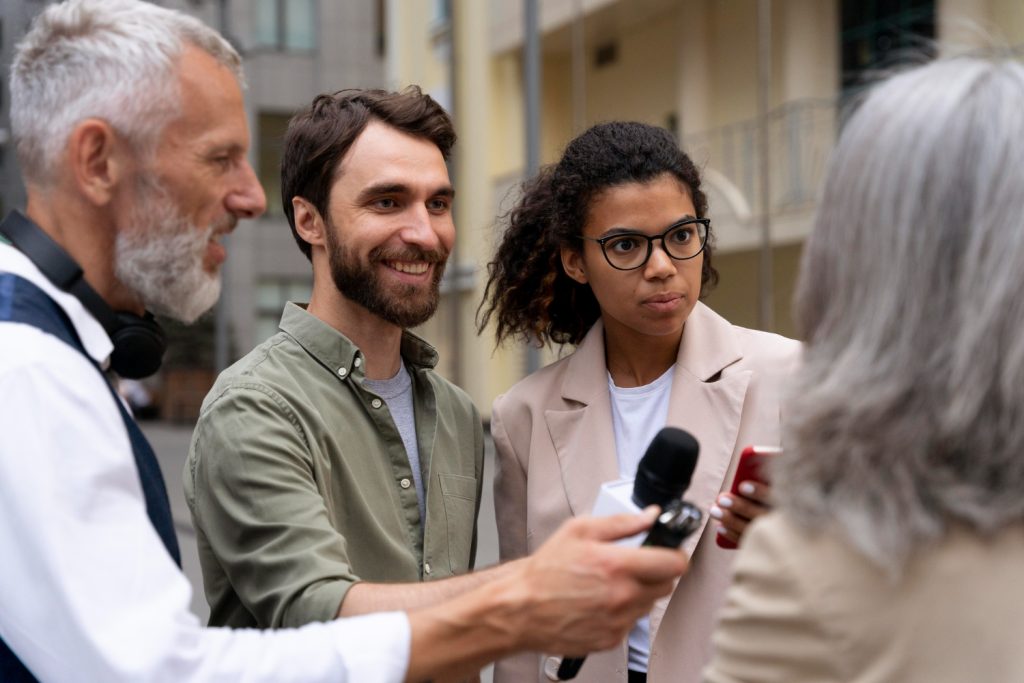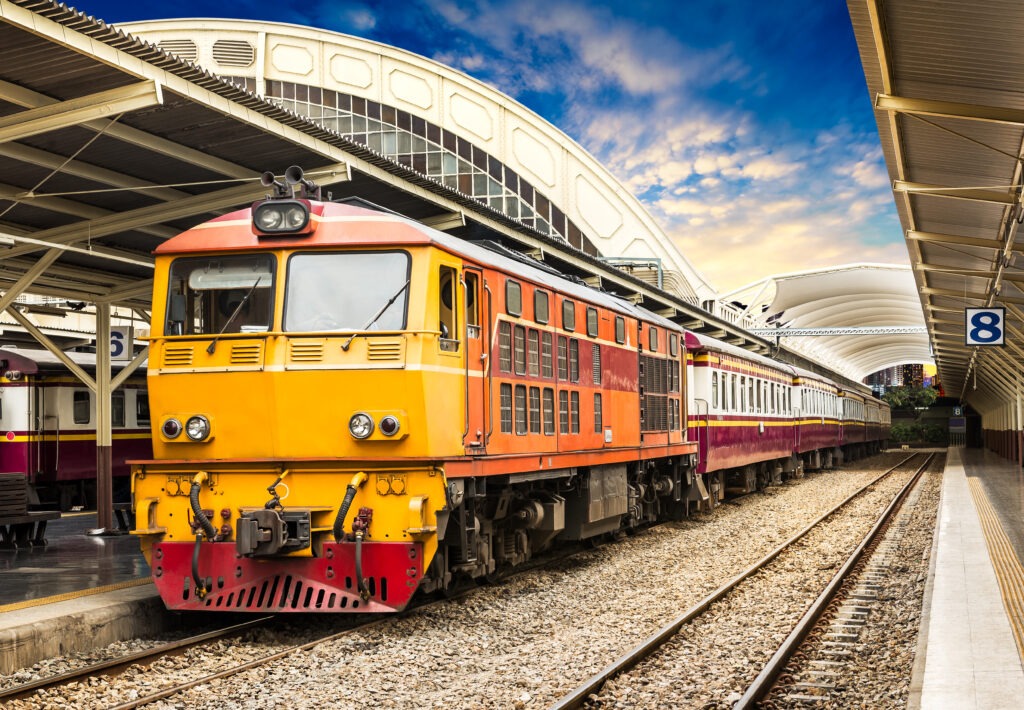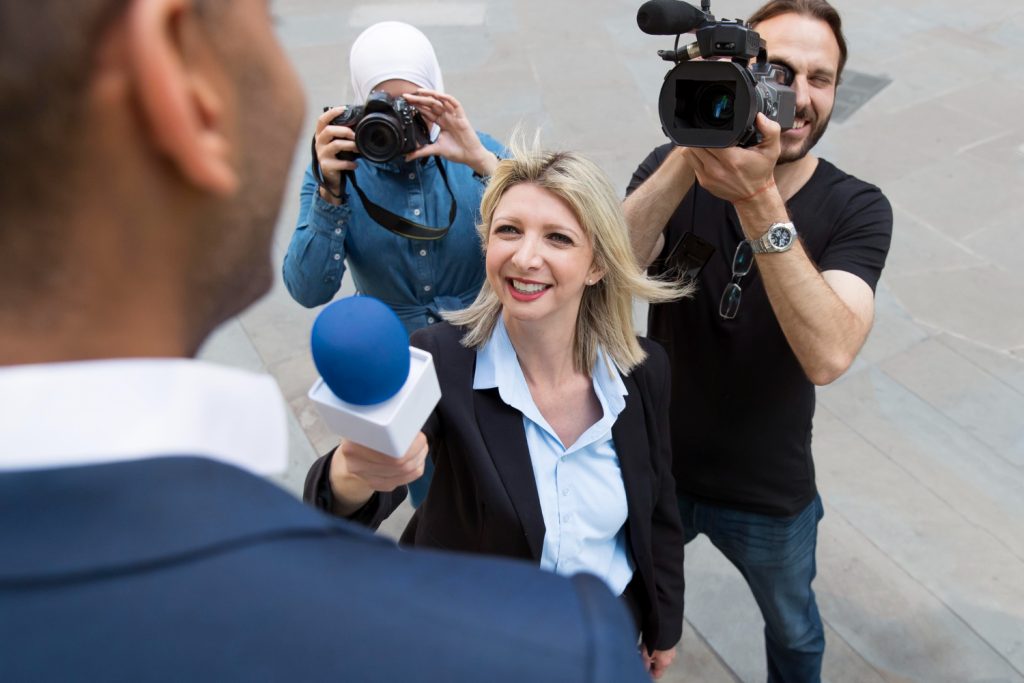A well-planned media trip for Indonesian journalists can unlock deeper storytelling and stronger media exposure for brands.
These trips offer an opportunity for journalists to gain firsthand experience of a company, industry, or event, allowing them to produce more engaging and informative coverage.
However, organizing a media trip for Indonesian journalists requires more than just booking flights and accommodations.
PR professionals must understand the unique dynamics of Indonesia’s media landscape, including tight newsroom deadlines, editorial focus, and the diversity of journalist backgrounds.
To ensure your next media trip for Indonesian journalists meets everyone’s needs, RadVoice Indonesia has rounded up five smart and practical tips every PR professional should follow.
1. Choose the Appropriate Media

When planning a media trip, it’s crucial to select media outlets that align with the target audience, the company’s budget, and the purpose of the trip.
Choosing the right media ensures that the message reaches the intended audience effectively and efficiently.
For instance, if the goal’s to introduce the production process of a technology product, the invited journalists should come from media outlets that specialize in technology reporting.
Likewise, if the focus is on a culinary or cooking event, it’s best to engage media that regularly cover culinary topics.
According to Indonesia PR, it’s also important to establish clear expectations about coverage outcomes before the trip begins.
This includes agreeing on the story angle, where the article will be published, the expected length of the piece, and any supplementary content such as social media posts.
2. Prepare an Interesting Itinerary
A well-structured and engaging itinerary becomes essential in organizing a successful media trip for Indonesian journalists.
Start by creating a detailed travel plan that outlines the activities journalists will participate in throughout the trip.
However, be mindful not to overload the schedule. Avoid including too many activities in one day so that journalists have ample time to absorb and process the information they gather.
Balance is key. Combine formal sessions, such as presentations or panel discussions, with more informal experiences like site visits or company tours. This allows journalists to gain firsthand insights that can enrich their reporting.
Here’s an example of an itinerary that could be used for a media trip for Indonesian journalists:
- Day 1: Visit the main location or facility.
- Day 2: Conduct scheduled interviews with key sources.
- Final day: Host a closing discussion or reflection session.
This format can be customized according to your objectives. Ensure the itinerary gets as detailed as possible, including specific times, locations, and the names of relevant sources or speakers.
Including experts in the field will enhance the value of the information journalists receive and help them produce more in-depth stories.
Planning a media trip for Indonesian journalists that truly stands out? Contact RadVoice to make it happen.
3. Provide a Press Kit

The press kit can be distributed in either print or digital format and should include key materials such as press releases, high-resolution photos, videos, company profiles, fact sheets, and any other supporting information.
If you choose to provide the press kit in digital form, consider storing the files on a USB drive, uploading them to Google Drive, or sharing them via a secure download link.
This ensures easy and convenient access for journalists during and after the trip.
Moreover, the press kit allows companies to shape the narrative by emphasizing the key messages they want the media to highlight.
Well-prepared materials help ensure the company’s story is conveyed accurately and effectively.
4. Arrange Logistics
Well-organized logistics not only ensure a smooth experience but also leave a positive impression on participating journalists.
Logistical arrangements typically include transportation, accommodation, and meals.
For transportation, it’s essential to ensure that vehicles are readily available from the beginning of the trip to avoid delays or confusion.
If the media trip takes place outside the city, make sure to arrange train, plane, or other transportation tickets in advance.

For international trips, additional preparations such as visas, passports, and travel documents must also be handled ahead of time. Be sure to coordinate pickup and departure times to match the journalists’ schedules.
When it comes to accommodation, choose lodging that’s located close to the event venue. This helps save travel time and allows journalists to focus on the purpose of the trip.
It’s also important to select accommodations that offer essential facilities, such as reliable internet access and comfortable workspaces to support journalists in producing timely content.
5. Evaluate the Result of the Media Trip
Once the media trip is complete, it’s important to conduct a thorough evaluation of the results.
This involves measuring the media coverage generated, assessing the quality of the reporting, and identifying whether the key messages were effectively conveyed.
Start by counting the number of publications that resulted from the trip. Then, review the content to evaluate how well it reflects the objectives of the media trip.
It’s also valuable to seek feedback from the participating journalists. Ask for their comments, criticisms, or suggestions about how the trip was organized.
Continue building relationships by providing them with relevant updates and access to key contacts, who can serve as reliable sources for future stories.
Summary
Preparing an effective media trip for Indonesian journalists requires thorough and strategic planning.
Start by selecting the right media, preparing an engaging itinerary, providing press kits for journalists, arranging transportation and accommodation, and evaluating the results of the media trip.
Maintaining strong relationships with journalists after the trip is just as important as the trip itself.
This article was first published in Indonesian on 5 December 2024.

